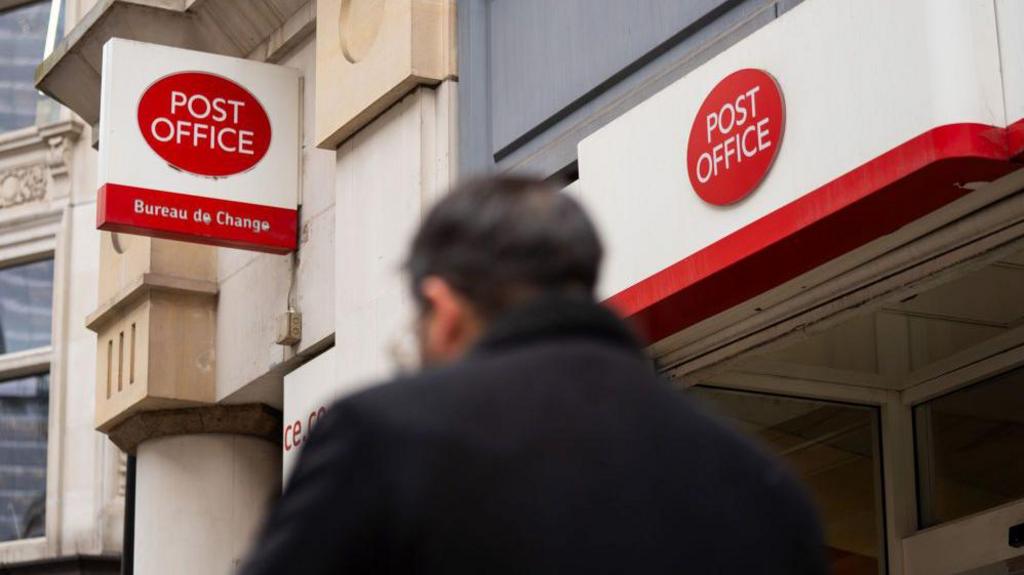The government has initiated a public consultation on the future of the Post Office, suggesting that ownership could be transferred to its postmasters.
Gareth Thomas, the minister overseeing the service, stated the need for “a fresh vision” while assuring that there are no plans to reduce the number of branches.
The Post Office, operating in over 11,500 locations nationwide, is fully state-owned and subsidized by taxpayers.
Mutualisation plans have been under consideration for over a decade but were previously set aside due to the scandal involving the wrongful conviction of sub-postmasters.
The government aims to transform the organization’s culture following the scandal, where hundreds of sub-postmasters were wrongly accused of false accounting and theft based on faulty accountancy software called Horizon.
The scandal recently resurfaced after the public inquiry into the matter published its initial report, focusing on the impact on sub-postmasters and their families.
“We all know, sadly, the grim legacy… so this is about fixing the fundamental problems,” Thomas told the BBC.
He emphasized the need to restore trust in the Post Office, both among its postmasters and the general public.
Thomas also announced a 12-week consultation to foster a national debate on the organization’s future management, including options for mutual ownership or a charter model similar to the BBC.
The government anticipates that changes to the Post Office’s structure are unlikely to occur before 2030.
The Horizon IT system replacement is projected to take three to five years, and the Post Office will need to consider the inquiry’s recommendations.
The consultation seeks input on whether the Post Office should maintain its 11,500 branches. However, Thomas stated that the government believes the current network size is “broadly right” and does not anticipate closures.
The minister also announced an additional £118 million to support ongoing changes within the Post Office.
In addition to ownership, the government is seeking opinions on the future services the Post Office should offer, particularly focusing on banking services, as major lenders continue to close high street branches.
Currently, customers can deposit and withdraw money from accounts at most banks through the Post Office.
They can also purchase foreign currency, obtain welfare benefit forms and payments, and submit passport applications. However, the full range of services is available only at larger locations.
Research accompanying the Green Paper on the future of the Post Office indicates that it adds “social value” of £5.2 billion annually to households and £1.3 billion to small and medium-sized businesses.
However, the business has struggled to achieve profitability, relying on substantial state subsidies as customers send fewer letters and increasingly use online services and alternative delivery operators.
According to the Post Office, 99.7% of the population lives within three miles of a branch, and 4,000 branches are open seven days a week.
The Post Office has already announced its transition of remaining standalone shops to a franchise model, allowing franchise holders to offer Post Office services alongside other retail services.
The government stated it would not pursue “potentially expensive” ownership structure changes until the Post Office achieves “financial and operational stability.”
However, it proposed two alternatives for longer-term change:
The concept of shared ownership was initially raised in 2012 after the separation of the Post Office from Royal Mail, the postal delivery service.
Many smaller businesses utilize mutual models, but prominent larger UK businesses operating under this structure include the John Lewis Partnership and the Co-operative.
In mutually-run organizations, staff are more closely involved in decision-making and have a greater stake in the business’s performance.
Last year, Thomas informed parliament that nearly half of the branches were either unprofitable or generated only a small profit from Post Office business, leading to wage stagnation for postmasters.
Rose Marley, chief executive of Co-operatives UK, an organization promoting mutual business ownership, stated that employee-owned businesses have proven to be more productive, and this switch could be “genuinely transformative.”
She suggested that the Horizon scandal would have been less likely under shared ownership.
“A stakeholder-led Post Office would be far better placed to surface concerns early and protect those on the front line,” she said.
“It would hardwire in a culture of transparency and shared responsibility.”
Many were wrongly prosecuted after faulty software said money was missing from their Post Office branch accounts.
Potential sub-postmasters face financial barriers as well as reluctance due to the Horizon scandal.
Aged 92, Betty Brown is understood to be the oldest victim of the accounting fiasco.
Leanne was forced to sell her home, but says the real victims are those who lost their lives.
As the initial findings of the Post Office inquiry are released, sub-postmasters tell the BBC how they feel.

